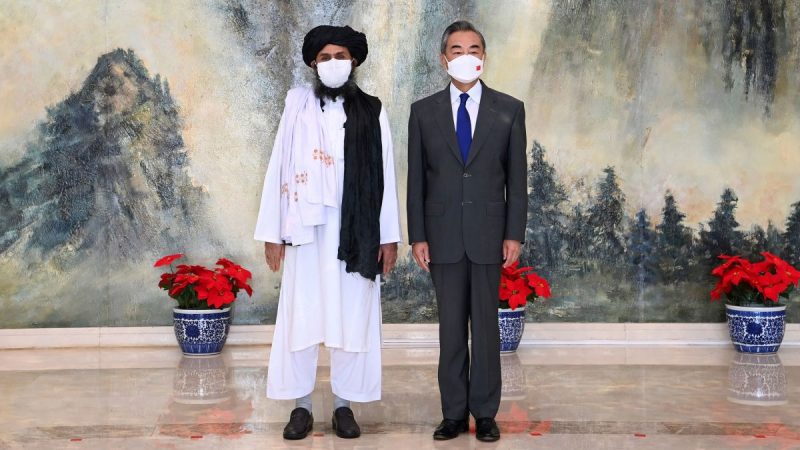The Taliban will attend China’s Belt and Road Forum, a two-day event that starts in Beijing on Tuesday.
The forum will make the 10th anniversary of President Xi Jinping’s ambitious global infrastructure initiative, modelled on ancient Silk Road routes, which aims to boost global trade and enhance China’s international standing.
It will also put a spotlight on Beijing’s growing ties with the regime that took over in Afghanistan in August 2021 after the departure of US troops from Kabul, which has not been formally recognised by any government.
Taliban officials and ministers have at times travelled to regional meetings, mostly those focused on Afghanistan, but the Belt and Road Forum is among the highest-profile multilateral summits it has been invited to attend.
ALSO SEE: Putin Heads to China; Energy Ties in Focus But Deals ‘Unlikely’
‘Large investors will be invited’ to Afghanistan
The Taliban’s acting minister for commerce and industry, Haji Nooruddin Azizi, will travel to Beijing, ministry spokesman Akhundzada Abdul Salam Jawad said.
“He will attend and will invite large investors” to Afghanistan, he said.
The impoverished country could offer a wealth of coveted mineral resources. A mines minister estimated in 2010 that Afghanistan had untapped deposits, ranging from copper to gold and lithium, worth between $1 trillion and $3 trillion. It is not clear how much they are worth today.
China has been in talks with the Taliban over plans, begun under the previous foreign-backed government, over a possible huge copper mine in eastern Afghanistan.
China’s foreign ministry did not immediately respond to a request for comment.
Talks on BRI link to Afghanistan
Azizi will continue discussions in Beijing on plans to build a road through the Wakhan corridor, a thin, mountainous strip in northern Afghanistan, to provide direct access to China, Akhundzada said.
Officials from China, the Taliban and neighbouring Pakistan said in May they would like Belt and Road to include Afghanistan and for the flagship China Pakistan Economic Corridor to be extended across the border to Afghanistan.
The Taliban has not been formally recognised by any government since taking control of Afghanistan two years ago as US and other foreign forces withdrew.
A series of restrictions on women’s access to public life and the barring of many female NGO staff from work has increased roadblocks to recognition, especially by Western countries, officials and international relations analysts say.
China has boosted engagement with the Taliban, becoming the first country to appoint an ambassador to Kabul since the Taliban took power, and invested in mining projects.
Beijing’s ambassador presented his credentials to the Taliban’s acting prime minister last month. Other nations have kept on previous ambassadors or appointed heads of mission in a charge d’affaires capacity that does not involve formally presenting credentials to the government.
- Reuters with additional editing by Jim Pollard
ALSO SEE:
Italy Says Belt And Road Deal Benefits Short of Expectations
China Denies Belt And Road Forum Being Shunned by The West
China’s Belt & Road Costs ‘Soared to $240bn Amid Bailouts’
Taliban Sounds Out China’s Huawei on Mass Surveillance Plan
US, Russian Envoys to Meet in China Over Afghanistan
Pakistan Allows India to Truck Food Aid to Afghanistan
Afghan Diplomats Stranded, Penniless – The Times
China Warns Miners Against ‘Blindly’ Visiting Afghanistan
World Bank Backs Transfer of $280m Afghan Fund to Aid Agencies
























